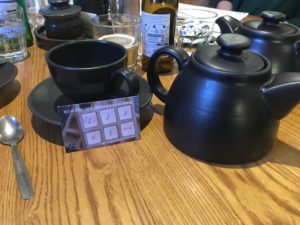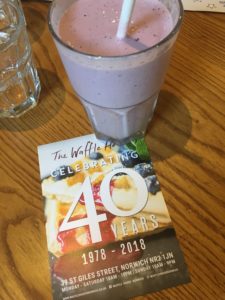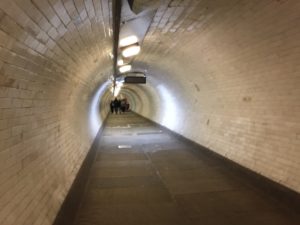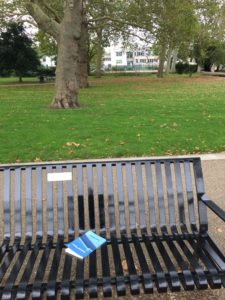I like to use place as a starting point, especially ‘en plein air’ – places where I’ve gone to write. I realised, after I wrote Unusual Places, that I was (subconsciously) writing about places as if they were haunted by their past, as I had done (more consciously) in my novels. Even The Waffle House in Norwich was haunted by all the waffles I had ever eaten. Forget about mistrusting the lyric ‘I’ for a second: that’s a lot of waffles.


It seems to me that we forget about the past at our peril, and although that’s a cliché, it’s still important. Eve Kosofsky Sedgwick, discussing sexuality in Tendencies, talks about the ‘acceptable gloss of the modern trivializing’ (p. 110). It seems that a phrase like ‘we forget about the past at our peril’ has been turned into a cliché by the same mechanism, in order to make it safe. Actually, there’s a great deal of power packed up in that phrase, and a great deal of power packed up in the memories contained in (held by?) everyday places.

My memory of walking through Greenwich Tunnel for the first time stayed with me for ages – I was haunted by it. I scribbled down the notes that became the story ‘Fragments’ shortly after that visit, sitting on the grass near by. On the other hand, it felt like such an ordinary journey under the river. Most people had commuter faces on, nobody really bothered to stop and look around them. Perhaps it would be too frightening to stop. When I went back recently, it was possibly more eerie, because of the story I wrote about it. It certainly felt haunted by all its possibilities, real and imagined. You can hear me reading some of ‘Fragments’ by clicking here.

So: here’s one way to write about place or, rather, to use place as a stimulus. Any place, after all, has memories attached to it: people have been in that place when something significant has happened. You can think in terms of types of places to start with: hospitals, hotels, libraries, schools, beaches, museums, art galleries, stately homes, parks, rubbish dumps, swimming pools. Does that give you any ideas, related to your own memories or could you give your main character particular memories related to that place? Use freewriting to start off with, and let the memories form on the page.
Combine place and memory: use your own memories or those of your characters. It doesn’t matter if the place is ‘ordinary’ or ‘extraordinary’, partly because it will only be ordinary or extraordinary to some people (I discovered that when I wrote about the holiday flatlets I grew up in), and partly because it’s the specific details, making it vivid for your readers, that count.
More soon. Until then, happy writing,
Lou xx
You can buy Unusual Places from the Cultured Llama website, as a paperback or ebook.
View all six posts on writing, place and short stories from 2018 here.